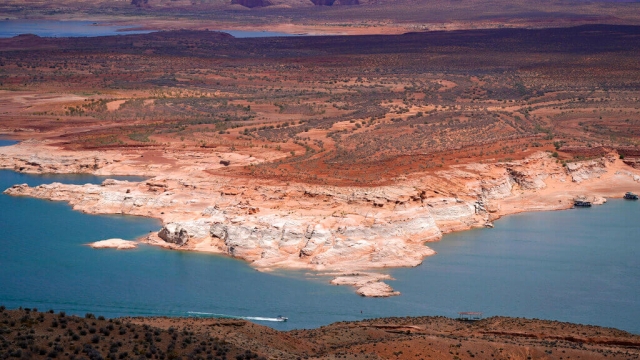It's easy to see that much less water flows through the Colorado River now than in previous decades.
The Aqueduct Water Risk Atlas analyzes current and future water risks around the world and flags this region as a top concern.
"We actually see that the Colorado River Basin is one of the most extremely water-stressed places in the world," said Samantha Kuzma, one of the authors of the latest report. "Six out the seven states within the Colorado River Compact rank in the top 10 of most water stressed states in the United States."
The Atlas finds that across the globe, 25 countries experience extremely high water stress every year, meaning they use nearly all the water they have.
Population growth, industrial and agricultural demands and climate change all contribute to a need for water that's projected to increase up to 25% by 2050.
SEE MORE: Rising sea levels put coastal farms at risk from saltwater intrusion
"As climate change makes water more variable, it becomes less reliable," Kuzma said. "You know our farmers who are depending on water at a certain time of year, won't be able to rely on that timing as much into the future."
Living with water stress can jeopardize people's lives, their jobs, the food supply and energy security.
Water demand has plateaued in parts of North America and Europe because of the investment in water efficiency technology.
But clearly some regions, like the Colorado River Basin, are still affected.
The report calls on governments around the world to put efficiency measures into place.
"When we're thinking about agriculture, which covers 70% of the global water demand, there are a lot of things that we can do to make agriculture more efficient, whether that's drip irrigation systems, things like that that reduce the amount of water we need," Kuzma said.
Nature-based solutions like the preservation of wetlands and forests are also highlighted.
Trending stories at Scrippsnews.com




